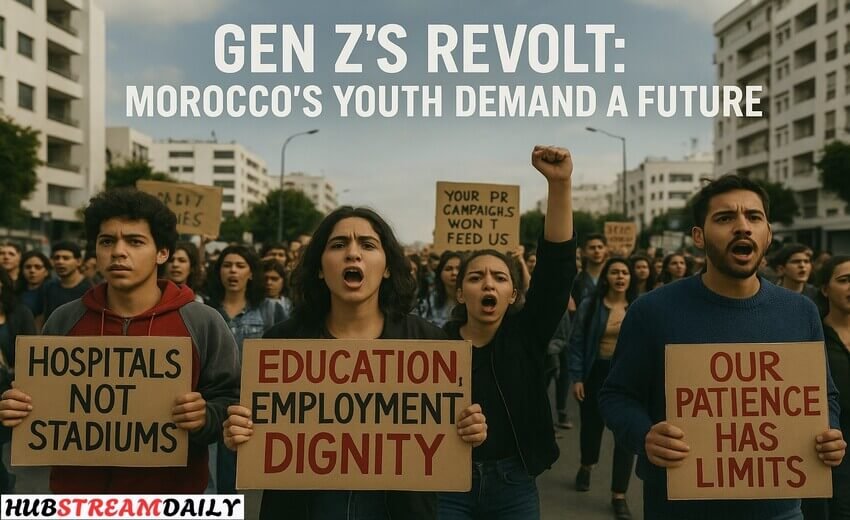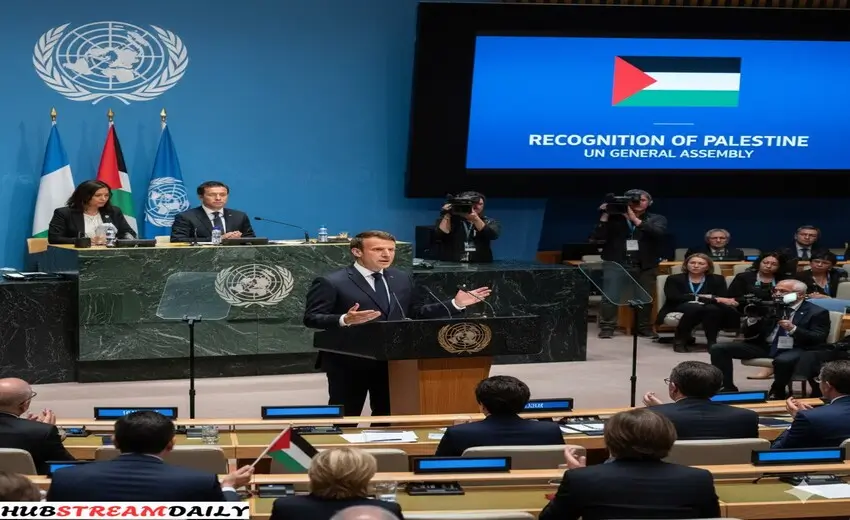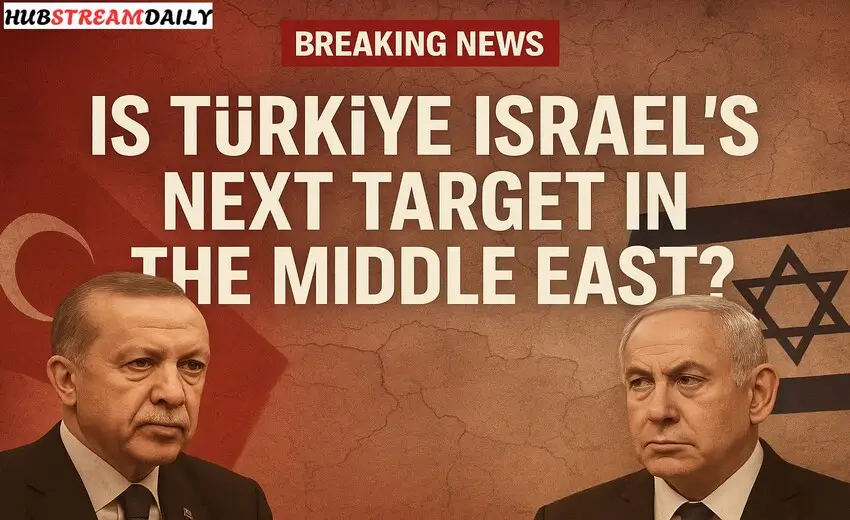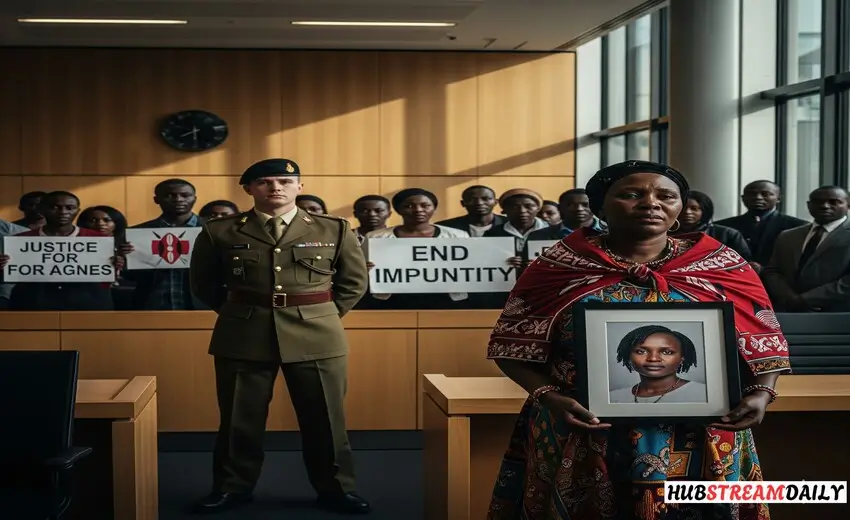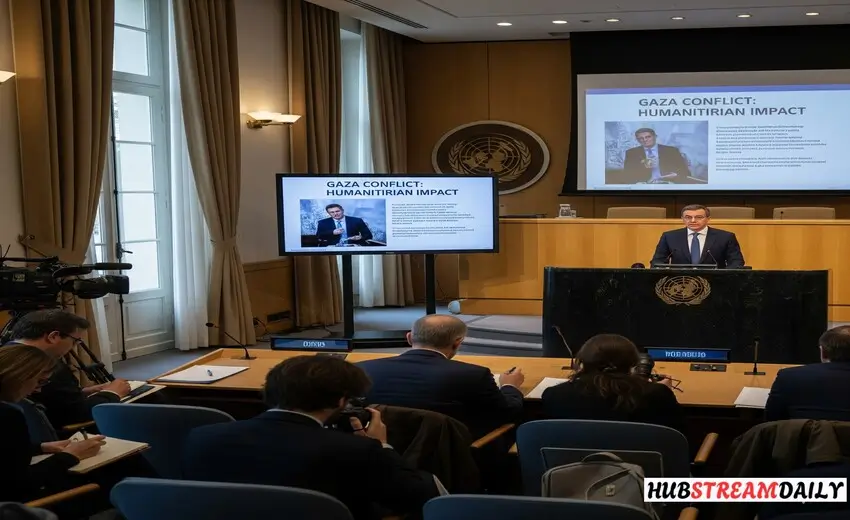
London, UK – In central London over the weekend, tensions ran hot as the police rounded up hundreds of people who were taking part in a large-scale demonstration in support of the recently outlawed activist network Palestine Action. The march, which was initially conducted peacefully, was soon involved in heated confrontations between the protesters and the police, thereby putting the whole city on alert and reigniting pro/con debates surrounding freedom of speech, the right to challenge authority, and government suppression of activists.
A Day of Demonstrations
Based on what the Metropolitan Police has said, the officers intervened and arrested over 300 people after the rally, which they deemed unlawful, was held. Protesters, waving Palestinian flags and carrying placards opposing the UK government’s stance on arms sales to Israel, marched through London calling for the British government to stop their support of the people they say have been “murdered and displaced by the Israeli army.”
Despite the majority of the protesters being peaceful, police say they have had to deal with various acts of vandalism and people obstructing the roads and trying to get into the company’s buildings illegally as a form of protest against the weapons manufacturers. Law enforcement officers wearing riot gear used force at different points, stating that they had received calls about threats to the order and security of the area.
Palestine Action: From Activism to a Banned Network
The UK government’s move to officially label Palestine Action as a banned extremist group is the cause of a recent protest against the decision. The authorities have charged them with purposely targeting defense companies, destroying properties, and interrupting supply chains. The group, formed in 2020, is the most prominent of the anti-narrative direct intervention campaigns against companies accused of supplying weapons to Israel, mainly Elbit Systems, an Israeli defense company with facilities in the UK.
Those who are on the side of Palestine Action state that the organization’s activities are based on non-violent protest and their goal is to stop the occurrence of war crimes. While on the other hand, opponents of the group believe that Palestine Action has gone so far as to incite violent acts and use harsh tactics. By the prohibition, it is stated that any kind of both membership and help as well as even public support of Palestine Action is considered a crime under UK law.
Protesters Defy Ban
Even though the ban was in place, the demonstration was attended by thousands of people who marched and shouted slogans such as “End UK Complicity” and “Free Palestine.” The activists alleged that the government was trying to silence legitimate dissent by criminalizing support for Palestine.
In a statement to the local media, a protester said:
“We are here to demand justice. The reason Palestine Action is being silenced is that they reveal the truth about Britain’s role in the oppression of Palestinians by Israel.”
One more protester said:
“You may prohibit organizations, but you will never be able to stop the movement for justice. We are going to proceed.”
Heavy Police Response
The Metropolitan Police utilized more than 1,500 officers who were deployed in various places in central London to manage the protests, citing intelligence about the planned disruptions. Authorities resorted to the Public Order legislation to remove the gatherings and they also issued a warning to the protesters not to associate with the groups that had been banned.
Deputy Commissioner Helen Ball said:
“The right to protest is at the heart of our democracy, but nevertheless, when individuals join themselves with banned organizations or commit crimes, then it is our obligation to respond promptly to maintain law enforcement.”
Besides that, according to the police, the arrests were made under charges which probably include breach of the peace, obstruction of the highways, vandalism, and support of a proscribed organization. Many of those arrested were released on bail while the police held some for questioning and possible prosecution.
Public Reaction and Political Debate
The measures taken by the authorities have incited a passionate debate all over Britain. Rights groups have criticized the government’s move to ban Palestine Action, saying that the ban sets a risky precedent for the silencing of activist voices. Amnesty International UK has called on the police to be very careful in separating violent extremists from non-violent protesters.
On the other hand, the authorities in the government rejected the accusations and maintained that the prohibition was justified because the methods used by the group endangered the safety of the public and the stability of the economy. The Minister of the Interior, James Cleverly, restated that “There is no such thing as an organization which is beyond the law. Violations of the law by means of intimidation and destruction will never be accepted under the mask of activism.”
International Spotlight
The arrests have also captured the attention of the international media, especially amid rising tensions in the Middle East. The British government’s clampdown on pro-Palestinian activism, while Israel’s military operations in Gaza are being closely scrutinized and worldwide demonstrations are intensifying, is putting the UK at the heart of a wider discussion about how democracies manage dissent during periods of geopolitical conflict.
Looking Ahead
It is anticipated that the arrests will be the cause of more protests in the following weeks as the activists are determined to oppose the government’s decision. There are already online campaigns for solidarity that are being shared; meanwhile, legal professionals foresee possible lawsuits in the UK courts challenging the ban on the basis of the rights to free speech and association.
The incident is a reflection of the struggle for the three fundamental rights: public safety, national security, and democratic freedoms. The pictures of hundreds of protesters being forcefully removed by police officers into vans will be for many a strong memory of the escalation of tensions around the UK’s role in the Israel-Palestine conflict and will haunt London as it deals with the aftermath.
Who Are Palestine Action?
Palestine Action is a network of activists that has been very disruptive in the United Kingdom since 2020. Direct action is their most recognizable feature – breaking into factories, taking over the power supplies of buildings, breaking windows, or using spray paint to vandalize arms manufacturers’ facilities, especially those of Elbit Systems, Israel’s major military enterprise.
The actors themselves argue that they are completely legitimate provided that Elbit is a company that manufactures drones and other military technology for the purpose of oppressing the Palestinians. The group’s motto “Shut Elbit Down” has appeared all over Britain in protest graffiti, banners, and social media campaigns.
On the other hand, the British authorities see Palestine Action as a danger. The group was once again put in the same category as terrorist organizations when the government officially banned it, placing it under counterterrorism legislation. Anyone who supports the group, goes to its events, or even publicly endorses its mission may now be sentenced to 10 years of imprisonment.
Protesters Defy the Ban
The Saturday demonstration was the first significant trial of the prohibition, by turning up in full view of the ban, the activists were able to defy it. Even after being warned that what they were about to do was illegal, the presence of the protesters and their logo made it possible for members of the public to identify the links with Palestine Action, the call for action and red and black flags be the two visible ways that the network was communicated.
“First of all, we say thank you to reporters for their presence and support. What happened today is a very significant legal and political case. Let me make one thing clear to the police: I’m a student at a prestigious British university, not a criminal. I was arrested during the protest. Just before they took me to jail, I said to the reporters,
“They can outlaw the group, but not us, who are the speakers. Palestine Action stands for the resistance that opposes this country’s role in the commission of war crimes. That is not terror —that is justice.””
On the occasion of the police crackdown on the protestors, civil rights and liberties advocates have come out strongly in the defense of such organizations. One of them, this representative of Liberty, the British human rights charity, when asked what she thinks of the UK government banning the Palestine Action organization, said:
“This is pure political suppression and nothing else.”
Heavy Police Presence
Authorities mobilized over 1,500 officers from various units including counterterror squads, riders on horseback, and rapid intervention teams. Cameras on drones captured aerial surveillance over central London, thus observing the flow of people in the area. Several Transport for London routes were off-limits, while in the regions of Westminster and Holborn, traffic was at a halt in some streets parts.
Deputy Commissioner Helen Ball explained the action taken:
“The right to peaceful protest is still there but individuals who are members of banned extremist groups cannot be allowed to threaten public safety or vandalize essential infrastructure.”
Lots of police vans were parked along Whitehall. At the same time, dozens of demonstrators who had been forcibly removed got into custody vehicles, and from their position, they yelled “Shame on you!” as the officers were carrying them off.
Political Fallout
The arrests have led to a heated discussion inside the Parliament. The Home Secretary’s James Cleverly-led government officials, responded to the question by saying:
“Palestine Action has become one of the main causes of the damage of the last period and risked the safety of people with their outrageous actions. This decision to prohibit the group was necessary.”
Opposition MPs and human rights lawyers misagree. Labour MP Zarah Sultana disapproved of the arrests and called them “a terrifying attack on the right to demonstrate.” The Green Party leaders likewise expressed this view, reminding the ministers to differentiate between non-violent activism and true extremism.
The Bigger Picture: Israel-Palestine and Global Activism
The containment is happening when there is an increased level of tension worldwide. One of the main reasons for the global uproar was Israel’s military operations in Gaza, which were condemned widely due to the death of many non-combatants. This led to protests raging across the globe. In all places, such as New York, Paris, Cape Town, and Sydney, people are going out in large numbers to demand the end of the injustice practiced on Palestinians.
As a country with a past deeply embroiled in the colonization of the Middle East, Britain finds itself in the hot seat now. According to critics, prohibiting Palestine Action is an indication of hypocrisy; while pro-Israel lobby groups are allowed to go on without hindrance, pro-Palestine activists are facing the law.
The international media have characterized the arrests as a chapter in the general trend of Western governments shutting down pro-Palestinian voices while solidarity with the Palestinians around the world is increasing.
Voices from the Streets
During the mayhem, the common Londoners’ views obtained were a mixture of sentiments. A number of supporters of the law enforcement unit present on the spot stressed that the police had to come into action. “I do empathize with their cause, but at the same time, I don’t think justifying roadblocks and property destruction is the way to do it,” a small business owner remarked.
However, a group of protester’s sympathizers might say just the opposite. “The government closes down organizations when they fear losing control. This is not about the protection of the public, but about the silencing of dissent,” a retired teacher, who was at the event, commented.
What Happens Next?
Legal experts predict a wave of challenges to the ban. Lawyers may argue that proscribing Palestine Action violates Article 10 and 11 of the European Convention on Human Rights, which protect freedom of expression and assembly.
Meanwhile, activists promise further action. Social media channels affiliated with Palestine Action have already called for “a new wave of resistance”, urging sympathizers not to be intimidated. Online hashtags such as #FreeTheActivists and #ShutElbitDown trended across X (formerly Twitter) within hours of the arrests.
Security analysts warn of a potential escalation, with underground networks possibly emerging as activists seek to bypass legal restrictions.
A Democracy Tested
Saturday’s events highlight a fundamental dilemma: how far can a democratic state go in curbing dissent while claiming to uphold free speech? For critics, the sight of hundreds being handcuffed and dragged into police vans for protesting a foreign war will leave lasting images of repression. For supporters of the ban, the crackdown was a necessary defense of order against an increasingly radicalized movement.
As London clears the debris of broken glass and splattered paint, one question lingers: Has Britain crossed the line from protecting democracy to stifling it?

